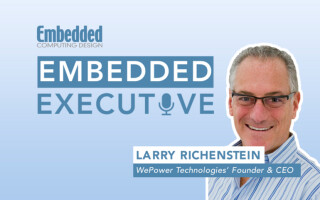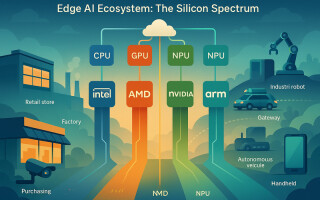Imec Doubles Energy Density of its Solid-State Batteries to 400Wh/Liter
July 01, 2019
Press Release

The Imec research and innovation hub unveiled a solid-state Li-metal battery cell with an energy density of 400 Wh/liter at a charging speed of 0.5C.
The Imec research and innovation hub unveiled a solid-state Li-metal battery cell with an energy density of 400 Wh/liter at a charging speed of 0.5C (2 hours) at the European Electric Vehicle Batteries Summit in Berlin. Imec also announced that they have started to upscale the materials and processes in a pilot line for fabrication of solid-state pouch cells at the EnergyVille Campus in Genk (Belgium) and is set-up in collaboration with the University of Hasselt. With its engineering roadmap for solid-state batteries, Imec aims to surpass wet Li-ion battery performance and reach 1000Wh/L at 2-3C by 2024.
Imec’s researchers are working to replace the wet electrolyte with a solid material, which provides a platform to further increase the energy density of the cell beyond that of cells based on liquid electrolyte. The solid nanocomposite electrolyte that the R&D center has developed has an exceptionally high conductivity of up to 10 mS/cm with a potential for even higher conductivities. A distinguishing feature of the new material is that it is applied as a liquid – via wet chemical coating – and only afterwards converted into a solid when it is already in place in the electrodes. That way it is perfectly suited to be casted into dense powder electrodes where it fills all cavities and makes maximum contact, just as a liquid electrolyte does.
Using that solid nanocomposite electrolyte in combination with a standard lithium ion phosphate (LFP) cathode and lithium metal anode, Imec has now fabricated an improved battery with an energy density of 400 Wh/liter at a charging speed of 0.5C (2 hours), a record combination for a solid-state battery. With this result, Imec managed to double its excellent results of last year, following its roadmap to eventually reach densities over 1,000Wh/liter at a charging speed of 2-3C (less than half an hour).
“The new battery demonstrates that our breakthrough electrolyte can be integrated in performant batteries. The pilot-line allows us to take the next step and upscale the battery breakthrough to industrially relevant processes and formats, using manufacturing processes similar to those for wet batteries,” said Philippe Vereecken, Scientific Director at Imec/EnergyVille.
For more information, visit www.energyville.be/en.




